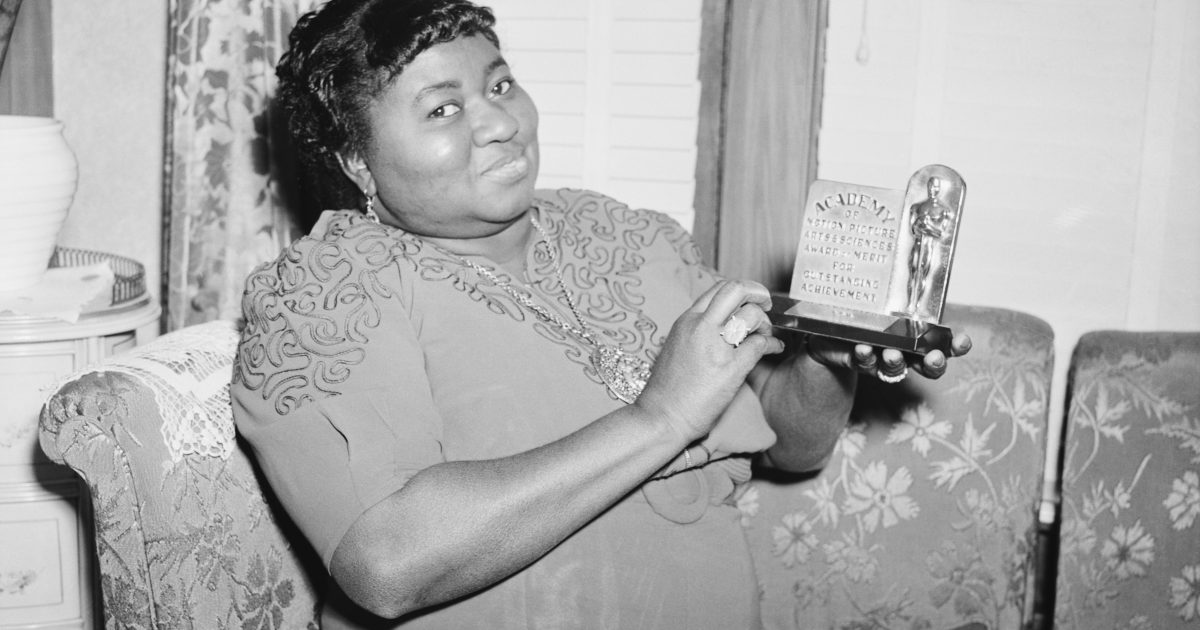A Hollywood Pioneer
- Hattie McDaniel, the first Black to win an Oscar, died 49 years ago today from breast cancer. She was 57.
- McDaniel won a golden statue for best supporting actress in the 1936 historical epic Gone With the Wind. She played “Mammy”.
- Black women are nearly 40 percent more likely than white women to die from breast cancer. Breast cancer is also the most common cancer found among Black women.
McDaniel won a golden statue for best supporting actress for her work in the 1936 historical epic Gone With the Wind. She played “Mammy.” Her wish was to be buried in the legendary Hollywood Forever Cemetery, but sadly, they had an “all whites” policy at the time. Hattie was instead laid to rest at the Angelus-Rosedale Cemetery, which was L.A.’s first to be open to all races.
Read MoreView this post on Instagram
When the cemetery’s new owners took over in 1998, they notably offered to have Hattie’s remains moved to her first choice of burial. The family understandably decided not to disturb her casket, so the owners decided to erect a cenotaph in her honor.
View this post on Instagram
On the day of the Academy Awards at The Cocoanut Grove in the Ambassador Hotel, Hattie was ushered to a small table in the back of the ballroom, while her castmates were seated in the front. Producer David O. Selznick had to petition to even get the actress into the event. The film had been nominated for 13 awards, and took home 10, including best picture.
View this post on Instagram
Hattie, who was born in Kansas, co-founded the Los Angeles Chapter of the Sigma Gamma Rho sorority in 1939. Decades later, the sorority created the “Hattie McDaniel Cancer Awareness and Health Program ” in her honor. The program’s mission is to “provide education and support of early detection of breast, prostate, ovarian, colon and other cancers as well as research for prevention of cancers,” according to the National Museum of African Americans on Stamps.
The United States Postal Service issued a stamp in Hattie’s honor on January 25, 2006. She is part of the longest running Commemorative Series that the post office has: The Black Heritage Series.
It was 1947 when Hattie was diagnosed with breast cancer. The international star then had a lead role in Beulah, which became the most popular radio program in the United States. She was scheduled for a television version of Beulah but was unable to commit to the opportunity due to her declining health.
African-American Women and Breast Cancer
Even to this day, women of color are dying from breast cancer at shockingly higher rates than white women due to disparities in access to care.
There are not a lot of statistics in American life as shocking as the death rates of Black women from breast cancer.
Specifically, we're talking about the rate at which black women die from breast cancer compared to white women.
Linda Tantawi, the CEO of Susan G. Komen New York City's affiliate, explains that while Black women and white women are diagnosed with breast cancer at the same rate, Black women are 40% more likely to die. While there are organizations out there trying to reduce the major disparities in access to care, very few have as much impact and legacy of commitment as Susan G. Komen. Komen operates globally, and the effort they apply to providing hands on help to breast cancer patients of all races is truly extraordinary.
The organization does things such as setting up mobile mammography units for the uninsured, and funding patient navigators to guide women through the treatment process. Despite the effort, there's still a long way to go. Many women in these underserved communities will delay treatment because they can't afford to take the time off from work, or because the treatment center is so far from their home. "There's so many things along the way that can trip up a woman," Tantawi told SurvivorNet in a prior interview. "Our goal is to get women to treatment sooner so they can survive longer."
Fewer Black Women Should Be Dying of Breast Cancer
Learn more about SurvivorNet's rigorous medical review process.


